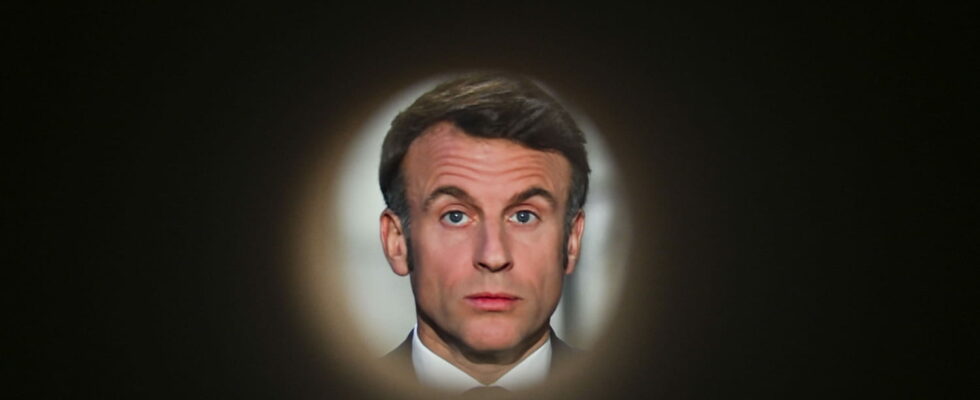Since the start of his first mandate in 2017, Emmanuel Macron has already mentioned the idea of a referendum for five major themes. None of his initiatives came to fruition.
Towards the organization of referendums in 2025? This would be a first in twenty years. Indeed, the French have not been called upon to vote in a referendum since 2005 and the victory of the “no” vote to the European Constitution treaty. On New Year’s Eve of December 31, Emmanuel Macron promised citizens that they will have the opportunity to “decide” on “decisive issues” this year. A declaration which opens the way to the organization of a “referendum or citizens’ conventions” confirmed the entourage of the Head of State to BFMTV.
Since his arrival at the Elysée in 2017, the head of state has regularly mentioned this democratic tool, without ever going as far as voting, the fault of various political obstacles, some of which remain. This is particularly the case for a hot topic that is often at the forefront of the political scene: immigration. However, article 11 of the Constitution which strictly regulates the subjects on which the opinion of the French can be requestedprevents referendums from being held on subjects such as immigration, as the National Rally (RN) has already been able to demand in the past.
In 2023, during the “Saint-Denis meetings”, in the presence of the different political forces with a group in Parliament, Emmanuel Macron affirmed that the discussions could allow the establishment of “referendum projects”, in the columns of the Point. The right and the far right had pushed for a referendum on immigration, a project which fell through after a second meeting on the subject and despite listening to the president on the issue.
Institutions, climate, pensions… Emmanuel Macron’s missed appointments
But in the mouth of Emmanuel Macron, the potential referendum goes back much longer. “If it is necessary, I will resort to the vote of our fellow citizens by way of referendum,” he declared in July 2017 during the Versailles Congress. The first theme concerned the broad overhaul of institutions. In the particular context of the Yellow Vests, they demanded citizen assemblies, the organization of a citizens’ initiative referendum (RIC) as well as the abolition of the Senate. The reduction in the number of parliamentarians, the limitation of the accumulation of mandates and the acceleration of the legislative procedure were also in the discussions. Despite the intensity, duration and efforts of the Yellow Vest social movement, this will not happen. The desire to bring citizens closer to the State on the part of the President of the Republic will remain there.
Another subject on which Emmanuel Macron had raised the idea of a referendum: the climate. Indeed, on December 14, 2020, he intended to include the fight for the Climate in the Constitution by referendum. And more particularly the “notions of biodiversity, environment and the fight against global warming”. Just six months later, in July 2021, Prime Minister Jean Castex announced the abandonment of the project. Concerning pension reform, the Head of State had also put forward the idea of a consultation of the people, in 2022. At the time, he wanted to shift the retirement age to 65 years (64 years currently ).
The umpteenth twist in the water concerns the thawing of the electoral body in New Caledonia. After a visit to the scene of the riots in May 2024, Emmanuel Macron indicated in Le Parisien that he could “go to the referendum at any time, since there is a conforming vote from the two assemblies”, the National Assembly and the Senate . This time, it is Michel Barnier who will put an end to the project, during his general policy declaration in October.
